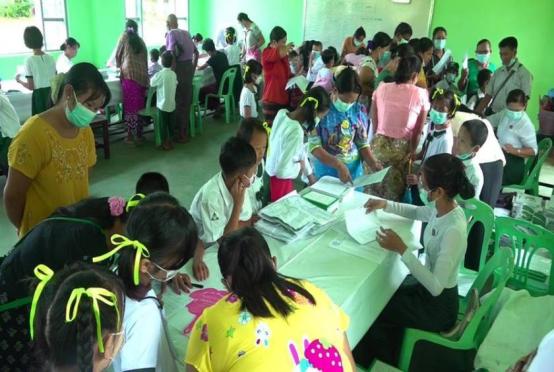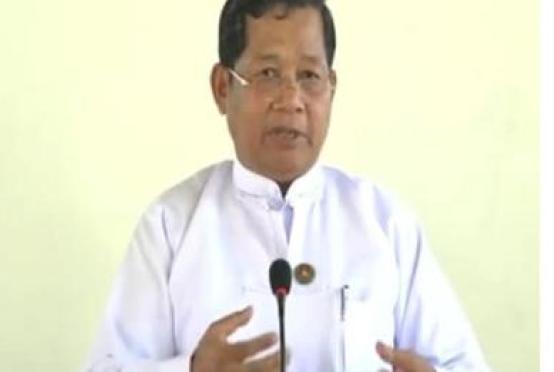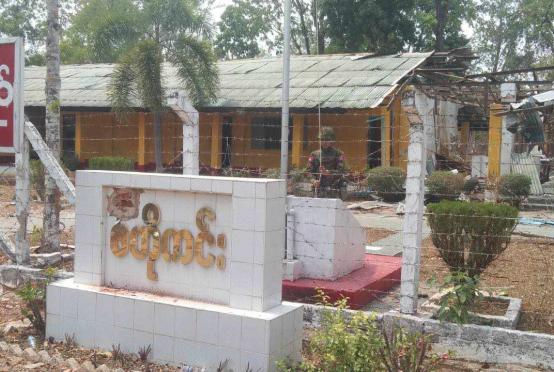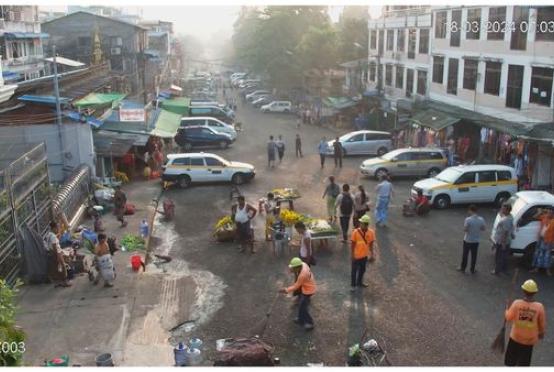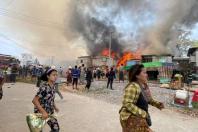MANILA, Philippines (The Inquirer/ANN) — Online classes for students. Videoconferencing for employees. Mandatory wearing of masks in public. No more restaurant buffets. Malls and banks with a maximum number of customers. Regular disinfection of your favorite salons.
These are glimpses of a postquarantine way of life for Filipinos before the new coronavirus is brought under full control with a vaccine, if a bill at the House of Representatives becomes a law.
House Bill No. 6623, or the proposed “New Normal for the Workplace and Public Spaces Act of 2020,” envisions a “whole of society” approach to the aftermath of the COVID-19 lockdown.
“This bill will prepare and educate the Filipino public for life after the lifting of COVID-19 restrictions and to adapt to the new norms of physical distancing. It institutionalizes a new way of life after the enhanced community quarantine [ECQ] and serves as a guide to the public,” its proponents said.
Standards, protocols
The bill says the resumption of economic and social activities “requires the institution and establishment of standards and protocols that would simultaneously protect the vulnerable from the disease and prevent transmission from asymptomatic or untested carriers of the virus, while ensuring the restoration of livelihood opportunities and sources of income for all, especially the country’s poor.”
The measures will remain in place for three years, unless earlier terminated by the President, depending on how soon a working vaccine for COVID-19 is developed and made available to the public, according to Deputy Speaker Luis Raymund VIllafuerte Jr., one of its proponents.
The coauthors of the bill are Speaker Alan Peter Cayetano, Deputy Speakers Paolo Duterte and Loren Legarda, Majority Leader Martin Romualdez, and Representatives Eric Yap, Michael Defensor and Jose Antonio Sy-Alvarado.
Some of the “universal and mandatory safety measures” are wearing of masks, hand-washing or sanitizing stations in public areas, temperature checks, “continuous profiling and monitoring” of residents, and physical distancing of “at least one meter, but preferably two meters,” in all public spaces.
Public transportation
The authorities can disperse a crowd even in a private location if the people are deemed to be violating the social distancing rules.
In public transportation, physical distancing also applies during queuing for tickets and in the interior of vehicles, according to the bill.
Contactless payment mechanisms will be implemented, and passengers will be required to wash their hands or sanitize before boarding buses or jeepneys. The operation of motorcycle taxis will remain suspended to prevent sharing of helmets and contact between the driver and the passenger.
In schools, online learning platforms will be the primary mode of instruction for students in all public and private schools while they remain closed. Once schools reopen, however, the size of classes will be reduced, and class days will be “staggered” to enable students and teachers to comply with physical distancing rules.
Under the bill, restaurants and other food establishments may resume operations initially only for take-out and delivery.
Buffets and salad bars will not be permitted once the ban on dine-in services is gradually lifted. Restaurants should provide disposable or nonshareable menu booklets and cutlery.
In banks, supermarkets, malls and other commercial establishments, the number of people will be limited. Online transactions and shopping services will be promoted.
More investments needed
Salons, parlors and spas, once allowed to reopen, must strictly observe frequent handwashing, disinfecting and cleaning practices, including the sanitizing of scissors and other tools.
Private companies and even schools may need to invest more funds to physically expand their buildings and premises to accommodate their employees according to social distancing rules and install new technology for online classes and meetings.
The measures, if enacted to the letter, could upset and transform social activities in the Philippines from going to the mall to attending religious services to taking the train, where long queues had been a familiar sight before the coronavirus outbreak.
These new rules will be in addition to existing security measures against crime and terrorism, as well as the Duterte administration’s focus on the illegal drug trade.
Already, a number of critics on social media pounced on the bill.
One student said on Twitter: “The ‘New Normal Bill’ is nothing but a defeatist piece of legislation, akin to a perpetual ECQ.”
“Countries such as Vietnam, South Korea know how to defeat the virus: Not through lockdowns alone but through aggressive mass testing and isolation of positive individuals. Shame,” he said.

